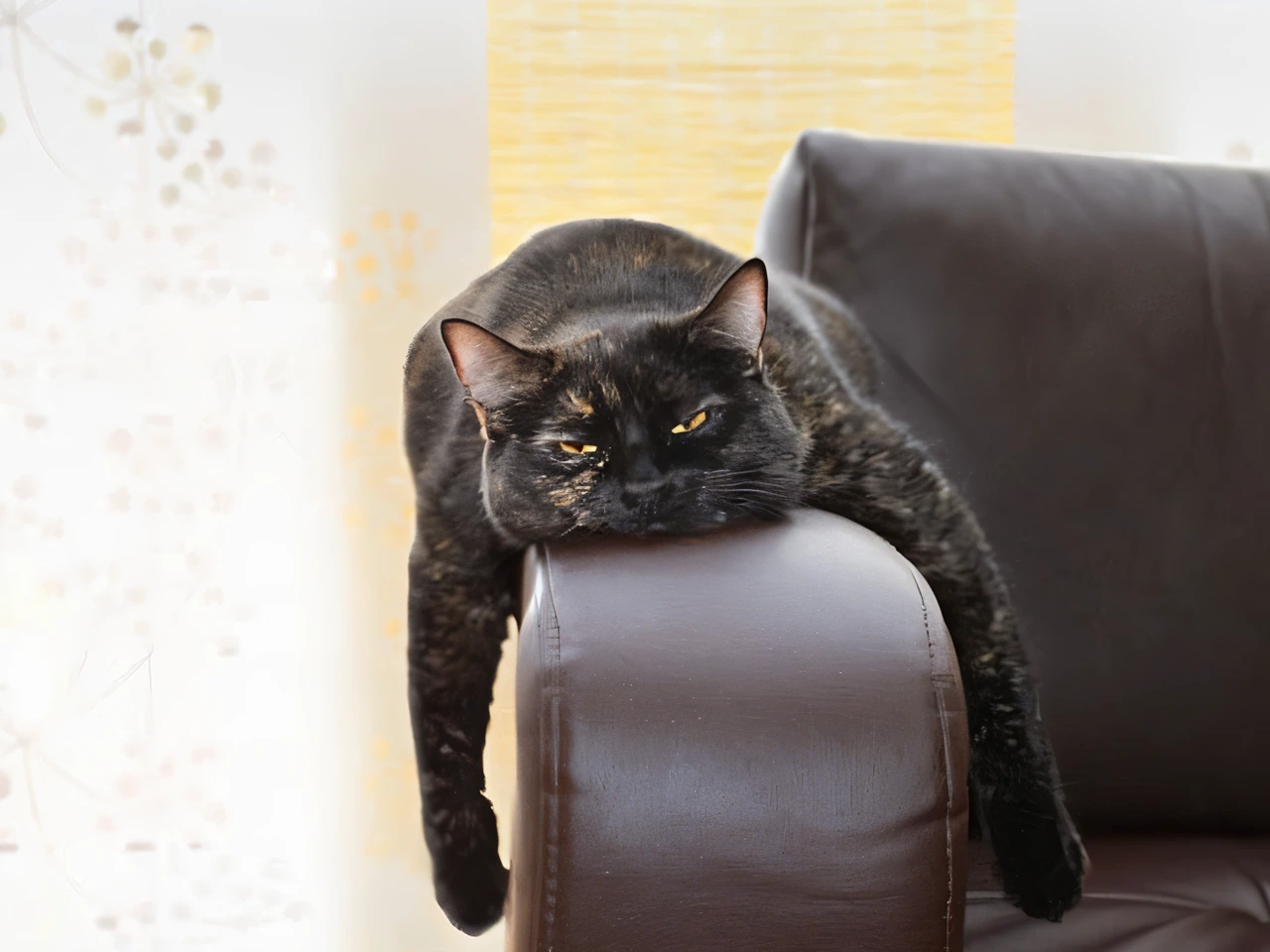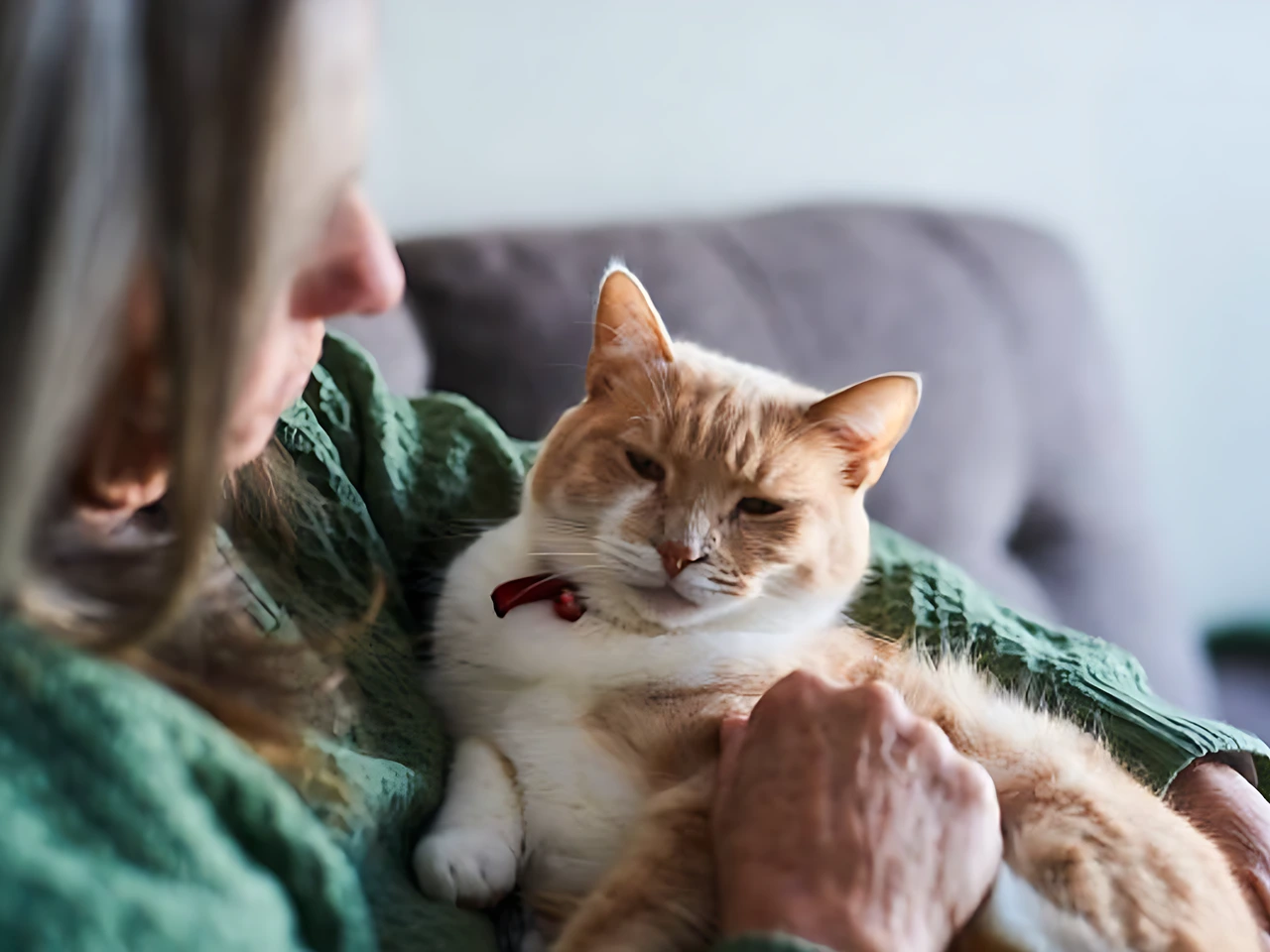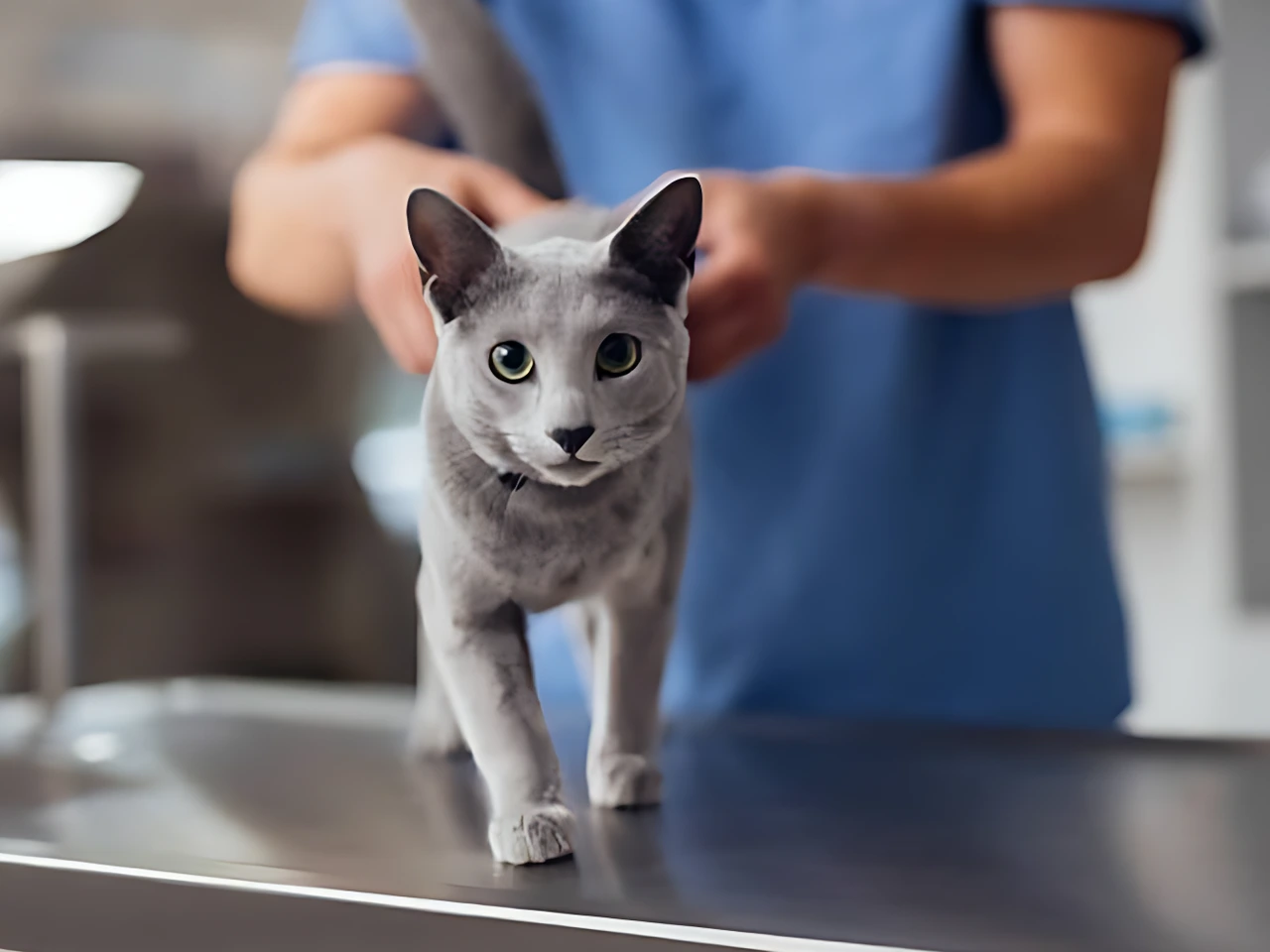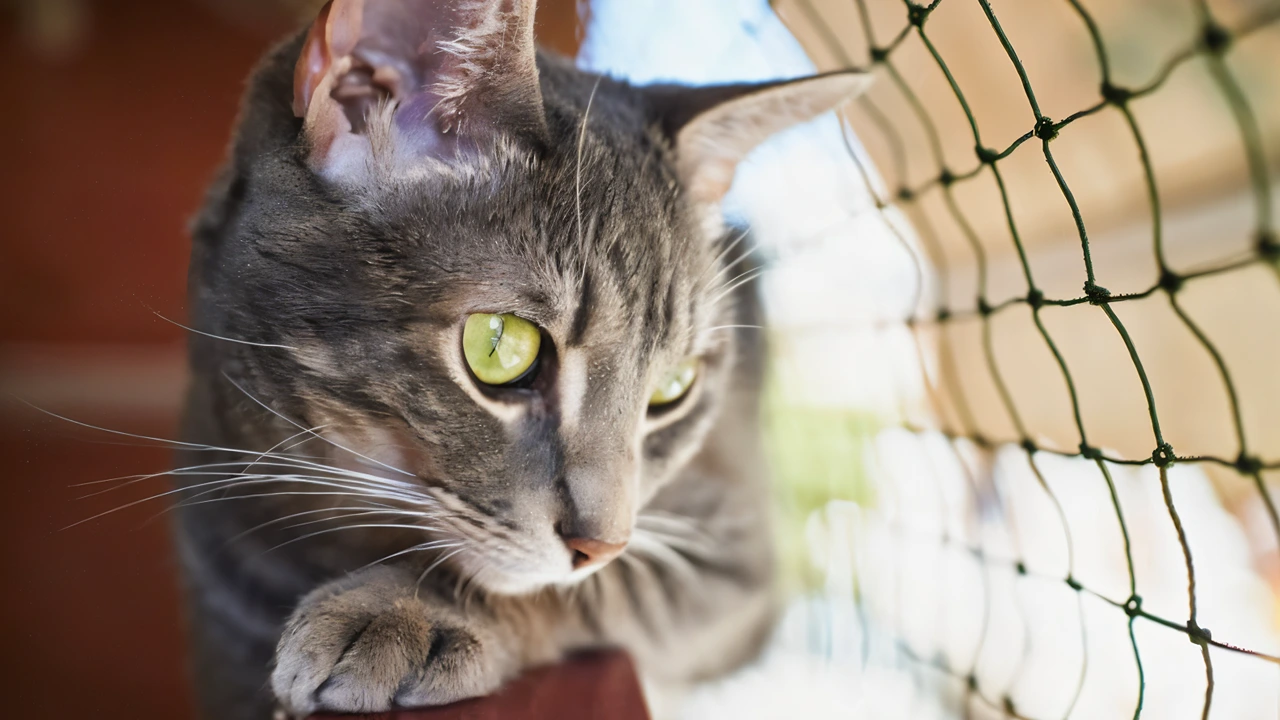TL;DR — Cat Not Eating or Drinking?
If your cat refuses food or water for more than 24 hours, it’s not just pickiness — it can be a sign of a serious health issue. Loss of appetite may point to conditions like dental pain, infections, organ disease, or even poisoning. While some home remedies may help temporarily, delaying veterinary care can put your cat at risk of life-threatening complications like dehydration or hepatic lipidosis.
Key Points:
- Refusing food/water for over 24 hours is an emergency — call your vet immediately.
- Common causes include dental pain, stress, infections, chronic illness, parasites, or toxic ingestion.
- Serious risks: cats that stop eating can quickly develop hepatic lipidosis (fatty liver disease), especially if overweight.
- Warning symptoms: vomiting, diarrhea, drooling, hiding, lethargy, weight loss, or unusual behaviour.
- Home remedies may help short term: warming food, offering wet food, mixing in broth or tuna juice, or hand-feeding.
- Veterinary care is critical: only a vet can diagnose the cause, provide hydration, prescribe appetite stimulants, or treat underlying illness.
- Prevention tip: maintain routine feeding times, provide fresh water, and schedule regular vet check-ups to catch issues early.
When in doubt, consult your veterinarian. Quick action can make the difference between a minor issue and a life-threatening emergency.
Is your cat not eating or drinking like they normally do? A sudden change in your cat’s eating habits or refusal to eat for more than 24 hours can be an early sign of a medical condition. Especially if your cat also shows symptoms like vomiting, diarrhea, or lack of urination, it’s important to seek veterinary care promptly.
While cats are known to be picky eaters, a complete loss of appetite may indicate something more serious than just refusing their old food. Whether it’s a senior cat, a change in canned cat food, or stress from changes in the home, there are many reasons why a cat won’t eat. Your veterinarian can perform a physical exam to determine the cause and help your cat get the nutrients they need.
Cat owners should be aware that refusing to eat or drink can lead to conditions like hepatic lipidosis or worsen chronic issues such as diabetes or kidney disease. If your cat isn’t eating, mixing in tuna, broth, or fish oil may help temporarily, but don’t delay if the problem persists. Want to know the most common reasons why a cat may not be eating and when to call the vet? Read on to learn more!
Common Reasons Why a Cat Has Stopped Eating or Drinking

When your cat is not eating or drinking, it can be very concerning for any cat owner. Cats may stop eating or lose their appetite due to a variety of reasons—some related to serious medical conditions and others linked to environmental or behavioural changes.
Understanding these common causes will help you recognize when your cat needs veterinary care and how you can support your pet to feel better and start eating normally again.
1. Serious Medical Conditions Affecting Appetite
Cats can stop eating because of serious medical issues such as pancreatitis, kidney disease, or liver failure. These conditions often cause symptoms like vomiting, diarrhea, or changes in urination that contribute to a cat’s lack of appetite. If your cat hasn’t eaten or drank for more than 24 hours, it is crucial to book an appointment with your veterinarian as soon as possible to diagnose and begin treatment. Early veterinary intervention can prevent further complications and help your cat start to eat again.
2. Dental Problems and Oral Pain
Dental issues are a very common reason why a cat may refuse food or eat less. Conditions such as inflamed gums, tooth decay, or oral ulcers cause pain that makes chewing uncomfortable. Even if your pet is interested in eating, dental pain can make them stop eating canned food or dry kibble. A veterinary dental exam is necessary to identify and treat these problems, which can help your cat feel better and restore normal eating habits.
3. Introduction of New Food or Food Preferences
Sometimes, the reason your cat won’t eat is related to the food itself. Cats are known to be picky eaters, and a sudden change to new food—whether canned food or dry kibble—may lead to refusal. Additionally, cats may refuse old food or food that has lost freshness. Mixing in fish oil or warming canned food with broth can entice picky eaters and increase their interest in eating, but always consult your vet before adding supplements to ensure safety.
4. Stress, Anxiety, and Changes in Environment
A cat’s eating habits can be significantly affected by stress or anxiety. Changes in the home, such as moving, new pets, or alterations in routine, can cause your cat to lose their appetite. This emotional distress may lead your cat to refuse their food or reduce their water intake. Maintaining a calm and consistent environment often helps cats regain their interest in eating and drinking normally.
5. Upper Respiratory Infections
Upper respiratory infections can cause congestion and reduce a cat’s sense of smell, which is critical for stimulating hunger. Cats with these infections may stop eating or drinking due to nasal discharge or sneezing, leading to a noticeable change in appetite. Veterinary treatment is important to clear the infection, after which your cat can usually start eating again.
6. Pain or Physical Discomfort Beyond the Mouth
Other sources of pain or discomfort—such as injuries, arthritis, or internal illness—may cause your cat to stop eating or drinking. If your cat is hiding, lethargic, or appears distressed, this could be a sign of underlying pain affecting their eating habits. A thorough physical exam by your veterinarian can help determine the cause and provide relief so your cat can resume eating normally.
7. Medication Side Effects
Some medications prescribed to treat existing health issues may cause nausea or a lack of appetite as side effects. If your cat is undergoing treatment and suddenly stops eating or drinking, this could be the reason. Discuss any side effects with your veterinarian; they may adjust the medication to make your cat feel better and more interested in eating.
8. Changes in Feeding Routine or Schedule
Cats thrive on routine, and changes in feeding times, locations, or types of food can disrupt their eating habits. A sudden shift in schedule may confuse your cat or make them less inclined to eat. Maintaining a consistent feeding routine can help your cat continue eating normally and avoid unnecessary stress.
9. Gastrointestinal Parasites
Parasites such as worms can cause gastrointestinal upset, leading to vomiting, diarrhea, and a loss of appetite. Cats infected with parasites may stop eating and drinking due to discomfort. Regular deworming and veterinary check-ups are essential to prevent and treat these infections, helping your cat maintain a healthy appetite.
10. Exposure to Poison or Toxic Substances
If your cat accidentally ingests toxic substances, such as certain plants, chemicals, or harmful human foods, they may suddenly refuse to eat or drink. Poisoning can cause severe symptoms including vomiting, drooling, and lethargy. This situation requires immediate veterinary care, so take your cat to the veterinarian as soon as possible.
11. Cancer or Tumors Affecting Eating
Cancer or tumors in older cats can cause physical obstruction or pain that interferes with eating. Tumors located in the mouth, throat, or digestive tract can prevent your cat from chewing or swallowing normally. Early diagnosis and treatment by your veterinarian are critical to managing symptoms and improving your cat’s quality of life.
12. Risk of Hepatic Lipidosis (Fatty Liver Disease)
When a cat stops eating—even for just 24 to 48 hours—they risk developing hepatic lipidosis, a serious liver condition common in overweight cats. Without eating, fat accumulates in the liver, causing it to fail. Your veterinarian may recommend hospitalization and the placement of a feeding tube to provide essential nutrients and help your cat recover.
13. Dehydration from Reduced Water Intake
Cats often obtain much of their hydration from food, especially canned cat food. When a cat stops eating, they often also reduce their amount of water, leading to dehydration. Offering wet food, broth, or water and monitoring your cat’s hydration is important while seeking veterinary care to prevent worsening health.
Some Home Remedies to Do

If your cat is not eating or drinking, there are some home remedies you can try to help your cat start eating and drinking again. These simple steps might encourage your pet to eat and feel better.
- Warm the food: Warming canned food or adding warm broth can make the smell more appealing, which may encourage your cat to eat.
- Offer wet or canned food: Some cats prefer wet food, and this might help your cat start eating if they usually eat dry food.
- Try hand-feeding: Sometimes your cat may be eating small amounts but needs extra encouragement. Hand-feeding can help your cat go back to eating normally.
- Mix in tasty additions: Adding a little fish oil or tuna juice can make food more enticing and help your pet eat when they may not eat otherwise.
- Keep a calm feeding area: A quiet and familiar place can help your cat feel safe, so your cat can start eating without stress.
- Provide fresh water often: Some cats may be eating but not drinking enough; offering fresh water or ice cubes can encourage hydration.
- Maintain routine feeding times: Cats thrive on routine, so keeping a consistent feeding schedule helps your cat go back to normal eating habits.
When to Rush to a Veterinary Clinic

It’s important to recognize when your cat’s refusal to eat or drink is a sign of a serious issue. While some causes are mild and temporary, others demand immediate medical attention. If your cat doesn't eat or drink for more than 24 hours, don’t wait—take them to the veterinarian immediately.
Cats, especially if overweight, are at risk of hepatic lipidosis (fatty liver disease) when they go without eating, which can become life-threatening in a short time. Here are critical situations when you should take your cat to the vet right away:
Refusing all food and water
If your cat hasn’t eaten or drank anything in 24 hours, or is showing a sudden loss of appetite, a veterinarian if your cat hasn’t been eating can assess for underlying issues.
Symptoms of illness
If your cat shows signs such as vomiting, diarrhea, extreme lethargy, or weight loss, they may be experiencing a serious medical condition. Your vet may run diagnostic tests to determine the cause.
Depression or anxiety
Emotional factors like anxiety or depression can cause cats to stop eating. While these might seem behavioural, they still require attention, as physical symptoms can quickly develop.
Signs of pain or distress
If your cat is drooling, pawing at their mouth, hiding, or acting differently, it may be in pain. These signs often accompany issues like dental problems or internal discomfort.
You suspect poisoning
Ingesting toxic foods, plants, or chemicals can cause a cat to stop eating and drinking. In these cases, it’s crucial to take them to the veterinarian immediately for treatment.
Ongoing appetite changes
If your pet has been eating less than usual for several days, even if they are eating a small amount, it’s best to let your vet know. They may be able to diagnose a condition before it worsens.
Final Thoughts
If your cat suddenly doesn’t eat or drink, it may be a sign of an underlying health issue that needs immediate attention. While some cats skip a meal occasionally, refusing food or water for more than 24 hours can be dangerous. Conditions like kidney disease, dental pain, or infections often cause cats to stop eating and should be addressed by a vet.
You can try home remedies such as warming up their food, offering wet food, or adding a bit of tuna juice to make meals more appealing. A calm feeding environment and maintaining a consistent routine may also help if stress is the reason your cat doesn’t eat. However, these approaches are only temporary and not a replacement for professional care if the problem persists.
When cats don’t eat or drink, they can quickly develop serious complications like dehydration or hepatic lipidosis, especially if they are overweight. Watch for other symptoms such as vomiting, lethargy, or hiding, which may point to a deeper problem. To keep your cat healthy and safe, don’t delay contacting your veterinarian if your cat’s eating or drinking habits change.
Frequently Asked Questions
What should I do if my cat is not eating or drinking for more than a day?
If your cat refuses food and water for over 24 hours, it’s important to act quickly to prevent dehydration and other health issues:
Monitor closely: Keep an eye out for symptoms like lethargy, vomiting, or diarrhea that may indicate a serious problem.
Encourage intake: Offer fresh water and try warming wet food to make it more appealing. Sometimes, adding a bit of tuna juice or broth can help.
Create a calm environment: Reduce noise and disturbances to help your cat feel safe and comfortable while eating.
Seek veterinary advice: If your cat still refuses to eat or drink after a day, contact your vet for an evaluation.
How can I encourage my cat to eat when it refuses food and water?
Helping a cat start eating again often requires patience and some creative approaches:
Warming food: Slightly warm wet food to enhance its smell and flavour, which can entice your cat.
Offering variety: Try different flavours, textures, or brands of food, including broths or baby food, to stimulate appetite.
Hand-feeding: Gently offer small bites by hand or use a syringe with vet approval if necessary to encourage eating.
Reducing stress: Ensure the feeding area is quiet and free from other pets or loud noises that might scare your cat.
When should you seek a vet about your cat not eating?
It’s important to contact your vet early when your cat stops eating to avoid serious complications:
Duration of refusal: If your cat has not eaten for more than 24 hours, it’s time to get professional advice.
Additional symptoms: Vomiting, diarrhea, lethargy, or changes in behaviour could indicate an underlying illness.
Physical changes: Noticeable weight loss, weakness, or dehydration are signs your cat needs veterinary care.
Owner concern: If you feel something is wrong or your cat seems unwell, don’t hesitate to reach out to your vet.
Can a vet help so my cat can start eating and drinking again?
Veterinary professionals have tools and treatments to support cats struggling to eat or drink:
Diagnosis: The vet will perform exams and tests to find the cause of your cat’s appetite loss.
Medical treatment: They can prescribe medications, appetite stimulants, or other therapies to improve eating.
Hydration support: If dehydration is a concern, the vet can administer fluids intravenously or subcutaneously.
Home care advice: Vets provide guidance on feeding techniques and diet changes to encourage eating at home.
When should you call your vet if your cat stops eating suddenly?
Calling your vet promptly is crucial if your cat suddenly refuses food to ensure timely care:
Time frame: Refusal to eat for more than 24 hours warrants an immediate vet consultation.
Symptoms: Accompanying vomiting, lethargy, or behavioural changes increase urgency.
Physical distress: Signs such as weakness, dehydration, or rapid weight loss require quick attention.
Urgency: Any sudden loss of appetite without a clear cause should be evaluated by a vet to rule out serious conditions.




